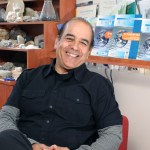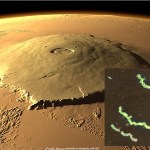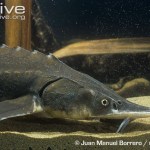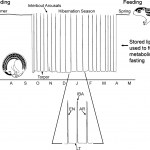environment
Bjorn Lomborg has written an Op Ed in the Wall Street Journal lamenting the decision of the University of Western Australia (UWA) to nix previously developed plans to accept a $4 million dollar payment from the conservative Australian government, to be matched by university money, to implement a version of Lomborg’s Copenhagen Institute there, to be known as Australia Consensus.
See: Bjorn Lomborg Is Wrong About Bangladesh And Sea Level Rise
See: Bjørn Lomborg WSJ Op Ed Is Stunningly Wrong
See: Are electric cars any good? Lomborg says no, but he’s wrong.
Lomborg’s scholarship in the area of…
“Those who know that the consensus of many centuries has sanctioned the conception that the earth remains at rest in the middle of the heavens as its center, would, I reflected, regard it as an insane pronouncement if I made the opposite assertion that the earth moves.” -Nicolaus Copernicus
There are certain words that simply get people's hackles raised, shutting off the part of their brain that normally responds to reason and instead results in an emotional response taking over. For some, that word is "theory," one of the words with the biggest gap between its colloquial and scientific uses…
“We came all this way to explore the Moon, and the most important thing is that we discovered the Earth.” -Bill Anders, Apollo 8, 1968
We've come an incredible distance in exploring the Universe. In the span of just a single human lifetime, we've gone from speculations about what other worlds in our Solar System might be like, the possibility of planets around other stars and wondering how many galaxies might be in our observable Universe to actual answers about all three of these profound questions.
Image credit: NASA / JPL-Caltech.
But as far as we've come, Earth is still the only…
“It’s tempting to go to the throat of the volcano to get the data, because if you do you’re a hero … It’s a battle between your mind and your emotions. If your emotions win out, you can get yourself in a lot of trouble.” -Ken Wohletz
Back on Monday, I shared with you the incomparable story of volcanic lightning. Little did I know that the night before, Colima volcano in Mexico had just started to erupt.
Image credit: César Cantú.
And another thing I had no way of knowing: world-class astrophotographer César Cantú was there to capture it, taking numerous shots of a…
Here's a bunch of graphic novels I've read in the last while that are well worth your time reading and acquiring for your library!
Abadzis, Nick. Laika. New York: First Second, 2007. 208pp. ISBN-13: 978-1596431010
Laika by Nick Abadzis in a fantastic graphic novel recounting the life of the first dog in space, the Russian dog Laika. The book goes into quite a bit of social and political history of the Soviet union in the 1950s, giving a good sense of how totalitarian states sometimes make decisions. We also get an illuminating look into the lives of people around Laika as her fateful one-way…
We live in a k-cup culture. Focused on the near term but willfully blind to the longer term implications of our daily decisions.
Just before the holidays I was watching the CBC TV show Power and Politics and they were discussing a bunch of "Top 5s" in an end-of year story. You know the type, the Top 5 this's and that's from the previous year, 2014, as well as a couple looking ahead to 2015. With a federal election scheduled in 2015, were the top 5 election issues that Canada that Canadians should keep on their radar in the coming year?
Economy/Jobs
Leadership/Ethics
Energy/Climate Change…
The default mode, politically-speaking, for most scientists seems to be professionally neutral. In other words, most scientists would tend to see their personal political beliefs as more or less completely separate from their work as scientists. Even for politically sensitive topics like climate change, the tendency is to focus on the the best available evidence rather than commenting more directly on the potential policy implications of that evidence. Only by maintaining that politcal neutrality with scientists will be able to maintain their surface veneer of objectivity. If you're too…
Prof. Nir Orion
Science Teaching researcher Prof. Nir Orion recently returned from Peru, where his award-winning Blue Planet teaching unit was adopted by the Peruvian Ministry of Education
Q: You have been working for many years to get schoolchildren out of the classroom setting. Why?
A: Schools in general and science teaching in particular are supposed to teach children about the world they live in. But they do it in a sterile environment that is disengaged from the real world; and thus many students do not find relevance or personal meaning in the subjects they “learn.”
There are,…
His latest column chides the climate Cassandras, and makes a really bizarre argument. Did you know that there have been severe disruptions of human activity by non-anthropogenic climate change in the past?
And if climate Cassandras are as conscientious as they claim to be about weighing evidence, how do they accommodate historical evidence of enormously consequential episodes of climate change not produced by human activity?
We accommodate the facts of catastrophic events with no problem at all. Volcanoes have erupted and meteors have smashed into the Earth, all without any triggering or…
The following is a letter from John Irving, posted originally on his Facebook page and reprinted here as a guest post:
NOTE: JOHN NOW HAS HIS OWN WEB SITE AND HAS POSTED HIS LETTER THERE. So do note that there are comments, including by John, below, but also go and visit his site!
John Irving
Dear Industrial Capitalists and members of the %0.01,
I feel obliged to inform you that you’ve made a huge strategic blunder and things aren’t probably going to work out very well for you soon.
You recall that way back in 1965 - 50 years ago this year - President Lyndon B. Johnson was warned about…
“I believe that we are here for each other, not against each other. Everything comes from an understanding that you are a gift in my life — whoever you are, whatever our differences.” -John Denver
So why not lead by example? If you think there's too much carbon in the atmosphere (because there is), if you think the Earth is undergoing global warming and climate change because of it (which the science says it is), and you think that you want to live in a time and place where the natural world is healthy, as John Denver would sing you in his classic song,
Take Me Home Country Roads,
maybe…
Everyone I know is raving about this short, speculative video about the future of space exploration.
Wanderers - a short film by Erik Wernquist from Erik Wernquist on Vimeo.
I'm not so enthused; I even find the words of Carl Sagan troubling. It's lovely and all, but…
There's nothing in those exotic landscapes as lovely and rich as mossy and majestic cedars of the Olympic Peninsula, or the rocky sea stacks of the nearby coast. The northern tundra is more alive than an icy plain on a distant moon; having Saturn's rings as a backdrop is not as glorious as an earthly sunset. If you want desert…
Speaking of sulfur: This common element turns out to be highly useful for understanding planetary processes – both on Earth and Mars. Two new papers by Dr. Itay Halevy use sulfur chemistry to understand the history of sulfur-loving microbes at the bottom of the ocean and the compounds spewed from Martian volcanoes that may have created brief Martian “springs.”
Sources of sulfur: Olympus Mons on Mars and sulfate-reducing bacteria that live in water on Earth (inset)
On the ocean beds, microorganisms “breathe” sulfur: They take in sulfate – an abundant compound of oxidized sulfur, and use it…
Siberian sturgeon in captivity
Drs. Thomas Eliot Haworth and Holly Shiels (University of Manchester) teamed up with Drs. Jaakko Haverinen and Matti Vornanen (University of Eastern Finland) to explore how electrical signaling in the hearts of fish have evolved by comparing Teleost fish with sturgeons. Their findings were published this month in the American Journal of Physiology - Regulatory, Integrative and Comparative Physiology.
According to the study authors, there are currently approximately 27,000 species of ray-finned fishes which make up 99% of all fishes existing today. Teleost…
“The trees are man’s best friends; but man has treated them as his worst enemies. The history of our race may be said to be the history of warfare upon the tree world. But while man has seemed to be the victor, his victories have brought upon him inevitable disasters.” -Nathaniel Egleston
When things you've grown to love leave your world, whether they leave of their own volition or they're taken from you, it can be agonizing. Have a listen to Damien Rice’s song,
The Animals Were Gone,
while you consider the following. Imagine that you live along a great, rushing river, with a huge…
I could rephrase this question. What should we do about climate change. The reason I might rephrase this is because we may not be that sure of what we can do, but we should do something. Or, more accurately, some things. There are a lot of possible things we can do, and we have little time to do them. So, maybe we should do all of them for a while. We could spend years working out what the best three or four things we can do might be, and try to implement them. But there will be political opposition from the right, because the right is inexplicably opposed to any action that smells like…
Image from the American Physiological Society's website.http://www.the-aps.org/mm/Conferences/APS-Conferences/2014-Conferences/…
Wednesday was the last day of the meeting that culminated in a closing banquet with an awards session to honor students who had exceptional presentations. What an impressive group of young comparative physiologists! The plenary lecture was given by Dr. Steven Chown (Monash Univ, Australia). He spoke about climate change forecasts and continuing environmental changes and how important it is to understand how animals adapt to changing conditions in order to…
This video is supposed to be some kind of funny parody but it looks just like my life so I don't get it!
Image from the American Physiological Society's website.http://www.the-aps.org/mm/Conferences/APS-Conferences/2014-Conferences/…
I am really excited about the comparative physiology conference that starts this weekend in San Diego! Here is a press release about the meeting (author Stacy Brooks from the American Physiological Society):
Bethesda, Md. (September 25, 2014) — More than 400 comparative and evolutionary physiologists will gather to present new research and discoveries in animal physiology at the American Physiological Society’s 2014 intersociety meeting “Comparative…
It's been quite a long while since I've done a "books I'd like to read" post, that's for sure. This fall seems to be have a particularly exciting list of books so I thought I'd pull some of them together (as well as some older books) here for all our enjoyment. These are all books I don't own yet, so they are not part of my towering to-read list. Yet.
I'm on sabbatical this academic year so I am trying to read and review books more diligently, aiming for about one per week. Maybe some of these will appear reviewed on the blog in the not too distant future.
Enjoy!
WTF, Evolution?!: A…










